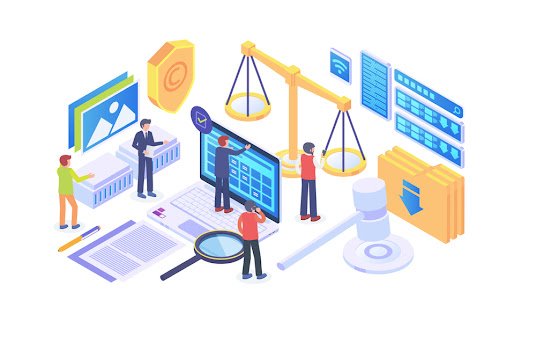What is the definition of legal technology?
It's crucial to grasp what legal technology is before diving into the latest developments. Legal technology employs new technologies to provide more efficient and productive legal services, ranging from artificial intelligence to automation to blockchain technology.
Law businesses may implement solutions without developer assistance or long wait times for IT thanks to the cloud's speed and power, automation, and other features. The legal and technology projections for 2022, according to Gartner, include the idea that the legal department would automate over 50% of legal labor for significant commercial transactions.
Overview of the Law Company's Modernization
With the introduction of innovative software products and other associated developments, the information technology sector has come a long way toward digital transformation. It has introduced a number of automated and extremely efficient tools and platforms in a variety of fields, including -
1. Legal Analysis-Traditionally, research process was time-consuming, fault, and exhausting, making it impossible for law firms to handle with complicated situations, fulfil their clients' demands, and make timely choices. This is becoming much easier with the emergence of document review tools and platforms like Casemaker, FindLaw, and Casetext.
2. eDiscovery and Predicting Code-Skill and ability technology, often known as digital review (TAR), is used to evaluate whether electronically stored information (ESI) documents are responsive. Predictive coding and eDiscovery tools driven by AI will continue to learn and improve, saving time and money.
3.Digital Invoicing-Digital billing solutions assist legal companies with a variety of operations inside the environment, from calculating GST to handling large amounts of data, receiving tailored billings, and analyzing information via the cloud.
4.Management of Legal Documents-Clio, Smokeball, and MyCase are examples of legal document production and management software that may help lawyers create, access, and manage all of their papers while also assisting them in making the best business decisions.
5. Project Planning and Confirmation- AI and Blockchain are included in these sorts of legal and software solutions.
supports legal entities in swiftly, reliably, and error-free verification and management of digital contracts.
legal technology trend to watch in 2022 for attorneys and legal experts
1.Everything digital will be adopted quickly.
Consumer behaviour is shifting toward digital." Those companies who embrace digital and connect with customers where they are looking will succeed in this new environment.
Make sure you can be seen and reached on the resources that potential clients use to conduct their research (such as Google My Business). As a result, it's critical to ensure that your data is current and correct.
2. Increased emphasis on the client experience
Anything that makes the client journey more simple, frictionless, and accessible will help law firms boost the number and grade of cases they handle.Will law teams change or go behind when consumers choose easy experiences through startups like DoorDash, Uber, Shopify, and Podium?
3. A higher standard for communication
Lawyers must pivot to identify new methods to interact with current and potential clients if they haven't already done so. From sales through billing, focus on innovative, seamless team collaboration channels for every aspect of the customer interaction.
4. Automation of routine administrative duties
Legal practitioners should be on the lookout for new technologies that really can automate routine administrative tasks. While AI and blockchain are more glamorous, the legal sector is nonetheless hampered by labor done by people that might be handled more efficiently by technology. Any technology that allows attorneys to service a much bigger market by changing only one approach is a game-changer.
5. Ongoing sector use of technologie
Once the world (and especially the courts) reopens, the tide will turn against video conferences, depositions, mediations, and other types of distant hearings. This is merely a short-term situation. Many legal clients who have previously been denied access to justice owing to financial, physical, intellectual, or even emotional restrictions no longer need to be.




Comments
Post a Comment